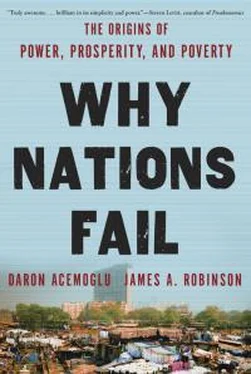Lewis, W. Arthur (1954). “Economic Development with Unlimited Supplies of Labour.” Manchester School of Economic and Social Studies 22: 139–91.
Lindert, Peter H. (2004). Growing Public. Volume 1: Social Spending and Economic Growth Since the Eighteenth Century . New York: Cambridge University Press.
——(2009). Growing Public. Volume 2: Further Evidence: Social Spending and Economic Growth Since the Eighteenth Century . New York: Cambridge University Press.
Lipset, Seymour Martin (1959). “Some Social Requisites of Democracy: Economic Development and Political Legitimacy.” American Political Science Review 53: 69–105.
Lipset, Seymour Martin, and Stein Rokkan, eds. (1967). Party System and Voter Alignments . New York: Free Press.
López, Claudia, ed. (2010). Y Refundaron la Patria … de cómo mafiosos y políticos reconfiguraron el Estado Colombiano . Bogotá: Corporación Nuevo Arco Iris: Intermedio.
Lovejoy, Paul E. (2000). Transformations in Slavery: A History of Slavery in Africa . 2nd ed. New York: Cambridge University Press.
MacFarquhar, Roderick, and Michael Schoenhals (2008). Mao’s Last Revolution . Cambridge, Mass.: Harvard University Press.
Mann, Michael (1986). The Sources of Social Power. Volume 1: A History of Power from the Beginning to A.D. 1760 . New York: Cambridge University Press.
——(1993). The Sources of Social Power. Volume 2: The Rise of Classes and Nation-states, 1760–1914 . New York: Cambridge University Press.
Manning, Patrick (1990). Slavery and African Life: Occidental, Oriental, and African Slave Trades . New York: Cambridge University Press.
Mantoux, Paul (1961). The Industrial Revolution in the Eighteenth Century . Rev. ed. New York: Harper and Row.
Martin, Simon, and Nikolai Grube (2000). Chronicle of the Maya Kings and Queens: Deciphering the Dynasties of the Ancient Maya . New York: Thames and Hudson.
Martinez, José (2002). Carlos Slim: Retrato Inédito . Mexico City: Editorial Oceano.
Masire, Quett K. J. (2006). Very Brave or Very Foolish? Memoirs of an African Democrat . Gaborone, Botswana: Macmillan.
McCreery, David J. (1994). Rural Guatemala, 1760–1940 . Palo Alto, Calif.: Stanford University Press.
McGregor, Richard (2010). The Party: The Secret World of China’s Communist Rulers . New York: Harper.
McMillan, John, and Pablo Zoido (2004). “How to Subvert Democracy: Montesinos in Peru.” Journal of Economic Perspectives 18: 69–92.
Melbourne, Alexander C. V. (1963). Early Constitutional Development in Australia: New South Wales 1788–1856; Queensland 1859–1922 . With notes to 1963 by the editor. Edited and introduced by R. B. Joyce. 2nd ed. St. Lucia: University of Queensland Press.
Meredith, Martin (2007). Mugabe: Power, Plunder, and the Struggle for Zimbabwe’s Future . New York: Public Affairs Press.
Michels, Robert (1962). Political Parties: A Sociological Study of the Oligarchical Tendencies of Modern Democracy . New York: Free Press.
Mickey, Robert W. (2008). Paths out of Dixie: The Democratization of Authoritarian Enclaves in America’s Deep South, 1944–1972 . Unpublished book manuscript.
Migdal, Joel S. (1988). Strong Societies and Weak States: State-Society Relations and State Capabilities in the Third World . Princeton, N.J.: Princeton University Press.
Mithen, Stephen (2006). After the Ice: A Global Human History 20,000–5000 BC . Cambridge, Mass.: Harvard University Press.
Mokyr, Joel (1990). The Lever of Riches: Technological Creativity and Economic Progress . New York: Oxford University Press.
——(2009). The Enlightened Economy . New York: Penguin.
Moore, Andrew M. T., G. C. Hillman, and A. J. Legge (2000). Village on the Euphrates: From Foraging to Farming at Abu Hureyra . New York: Oxford University Press.
Morgan, Edmund S. (1975). American Slavery, American Freedom: The Ordeal of Colonial Virginia . New York: W. W. Norton and Co.
Munro-Hay, Stuart C. (1991). Aksum: An African Civilisation of Late Antiquity . Edinburgh: Edinburgh University Press.
Myers, Ramon H., and Yeh-Chien Wang (2002). “Economic Developments, 1644–1800.” In Willard J. Peterson, ed. The Cambridge History of China. Volume 9, Part 1: The Ch’ing Empire to 1800 . New York: Cambridge University Press.
Naidu, Suresh (2009). “Suffrage, Schooling, and Sorting in the Post-Bellum South.” Unpublished. Department of Economics, Columbia University. Available at tuvalu.santafe.edu/~snaidu/papers/suffrage_sept_16_2010_combined.pdf.
Narayan, Deepa, ed. (2002). Empowerment and Poverty Reduction: A Sourcebook . Washington, D.C.: The World Bank.
Neal, David (1991). The Rule of Law in a Penal Colony . New York: Cambridge University Press.
Neale, J. E. (1971). Elizabeth I and Her Parliaments, 1559–1581 . London: Cape.
Nogal, C. Álvarez, and Leandro Prados de la Escosura (2007). “The Decline of Spain (1500–1850): Conjectural Estimates.” European Review of Economic History 11: 319–66.
North, Douglass C. (1982). Structure and Change in Economic History . New York: W. W. Norton and Co.
North, Douglass C., and Robert P. Thomas (1973). The Rise of the Western World: A New Economic History . New York: Cambridge University Press.
North, Douglass C., John J. Wallis, and Barry R. Weingast (1989). Violence and Social Orders: A Conceptual Framework for Interpreting Recorded Human History . Princeton, N.J.: Princeton University Press.
North, Douglass C., and Barry R. Weingast (1989). “Constitutions and Commitment: Evolution of Institutions Governing Public Choice in 17th Century England.” Journal of Economic History 49: 803–32.
Nove, Alec (1992). An Economic History of the USSR 1917–1991 . 3rd ed. New York: Penguin Books.
Nugent, Jeffrey B., and James A. Robinson (2010). “Are Endowments Fate? On the Political Economy of Comparative Institutional Development.” Revista de Historia Económica ( Journal of Iberian and Latin American Economic History ) 28: 45–82.
Nunn, Nathan (2008). “The Long-Term Effects of Africa’s Slave Trades.” Quarterly Journal of Economics 123: 139–76.
Nunn, Nathan, and Leonard Wantchekon (2011). “The Slave Trade and the Origins of Mistrust in Africa,” forthcoming in the American Economic Review .
O’Brien, Patrick K., Trevor Griffiths, and Philip Hunt (1991). “Political Components of the Industrial Revolution: Parliament and the English Cotton Textile Industry, 1660–1774.” Economic History Review , New Series 44: 395–423.
Ogilvie, Sheilagh (2011). Institutions and European Trade: Merchant Guilds 1000–1500 . New York: Cambridge University Press.
Читать дальше












